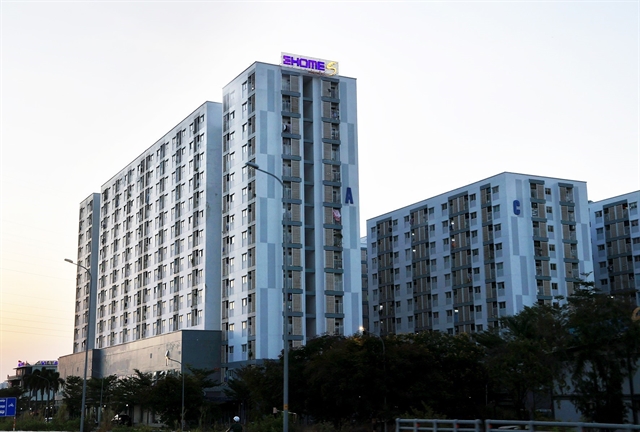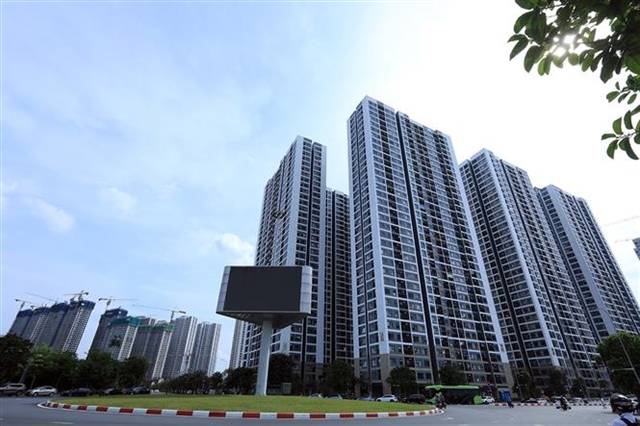 Economy
Economy

 |
| An urban area in Hà Nội. — VNA/VNS Photo |
HÀ NỘI — The Government has approved the Ministry of Natural Resources and Environment (MONRE)'s proposal to develop a National Assembly Resolution allowing pilot commercial housing projects through land use rights agreements, even for non-residential land.
This was mentioned in the recent issued Resolution No.80/NQ-CP.
The Minister of Justice, on behalf of the Government, submitted a proposal to the Standing Committee of the National Assembly.
The proposal requests to supplement the National Assembly's Resolution on piloting commercial housing projects through land use rights agreements or existing land use rights, where the land is not for residential purposes.
The Government proposes to submit this for the National Assembly's decision at their seventh session in May 2024.
The MONRE said that the use of land for commercial housing projects through land use rights agreements or existing land rights is a voluntary land transfer mechanism, in addition to the state's land acquisition.
The 2024 Land Law maintains this voluntary mechanism, but limits it to only allowing land use rights agreements for residential land to implement commercial housing projects.
The ministry noted that in reality, few households or individuals have residential land areas large enough to match the scale and standards of commercial housing projects.
The residential land allocation limits, typically not exceeding 400m2, make it difficult for enterprises to acquire sufficient land area for their planned commercial housing projects, which often require much larger land areas.
After the 2024 Land Law comes into effect, the real estate market is predicted to be limited to only urban development and rural residential projects formed through state land acquisition, as well as projects that convert existing residential or other land to commercial housing as per the law's provisions.
Additionally, the new regulations restrict commercial housing projects to only those undertaken by investors with rights to "residential land" or "residential and other land", meaning projects like industrial parks or tourism areas that had their land use previously changed to residential will not be able to implement the adjusted plans, leading to wasteful spending of state budgets on those plan changes. — VNS




